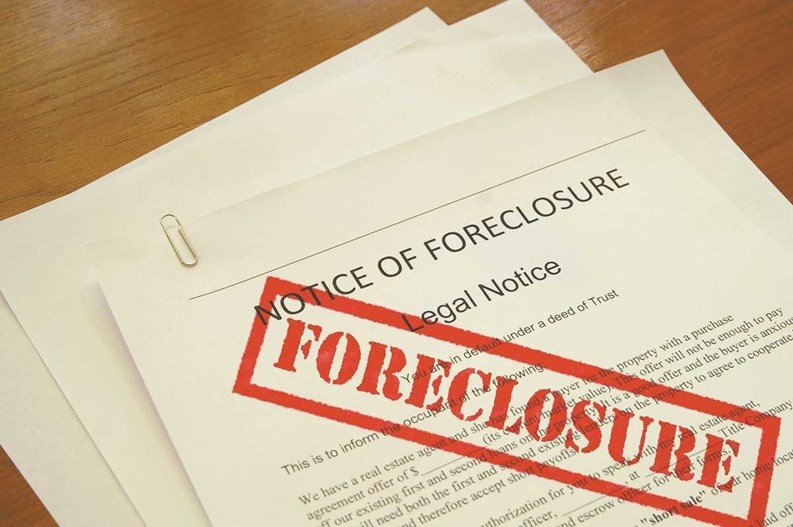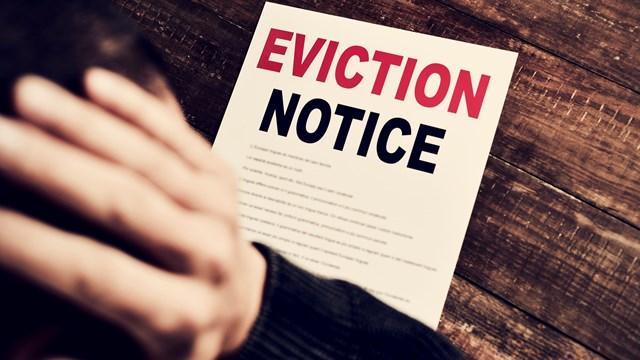Given the fact that 20 percent of the country lives in community or “common interest” associations, it’s no surprise that a groundswell of support—and legislative action—has evolved to protect their financial security.
A variety of laws enacted in 21 states and the District of Columbia allow community associations, in general, “first in line” lien positions (after city tax collectors) when there is non-payment of dues. As these liens can supercede those of a mortgage lender, they are called “super liens.” In legal arguments, community associations have been able to affirm that they act as mini-government bodies in the day-to-day management of their properties, and the association dues are, in fact, a form of taxation.
Some version of super priority lien has been adopted in: Alaska, Colorado, Connecticut, Delaware, Minnesota, Nevada, Vermont, West Virginia, Alabama, Pennsylvania, Rhode Island, Tennessee, Washington, Hawaii, Massachusetts, Florida, Illinois, Maryland, New Hampshire, New Jersey, Oregon and District of Columbia.
In some cases the super priority lien is only applicable to condos. In other states it can apply to condos and HOA-managed properties. There is a wide range of state-specific requirements and limitations for the super priority liens, with mixed success from state to state.
Lenders Looked for Loopholes
Matthew Gaines, an associate with the Braintree, Massachusetts law firm of Marcus, Errico, Emmer & Brooks, serves as chair of the Massachusetts Legislative Action Committee for the New England chapter of the Community Associations Institute (CAI). He describes the situation with condos and superliens relative to the recent real estate recession: “A lot of the units that were purchased in 2003-04 at the top of the market. They often secured 100 percent financing and then, as mortgages were packaged and resold, to ever more distant lenders, the unit owners were eventually stuck with a property that had no equity and worse… finally owing more than the market value of the property.”
“Owners defaulted and foreclosures ensued,” he continues, “but the associations could collect unpaid condo fees ahead of the mortgage lender’s lien, because of the superlien provision. It’s safe to say that every condo community in Mass. that has faced foreclosures has had success using the superlien provision.”
But lenders, he says, have continued to look for loopholes. “The original statute for priority liens used a six-month time frame, the logic being that six months was the time it would take a bank to foreclose on a property for non-payment of the mortgage. Well, I know of a unit right now that’s empty, no mortgage or fees are being paid and it’s been four years and the bank is not foreclosing.”
Associations have been dealing with that by utilizing the superlien provision. “For 20 years, it was assumed that you could always get multiple liens over the course of years,” Gaines explains. “The practice in the industry was that the association could file successive liens as the original six months passed. In the last two or three years, however, banks have attacked that practice and their lawyers are trying to say you can only get one lien for the entire life of a single mortgage.”
“The reaction,” he notes, “has been to file, last November, a bill in the Mass. Senate — Bill #603, An Act to Clarify Condominium Priority Liens.”
Amendment Sought in Mass. Law
Gaines explains the goal of the bill: “You have to begin when the legislature, in 1993, amended Section 6 of G.L. c. 183A to provide condominium associations with a priority lien over the first mortgage, for six months of condominium fees and all costs to collect the unpaid fees. The priority lien is secured with a court action and the recording of that lawsuit with the registry of deeds. In 1998 the legislature further amended Section 6 of G.L. c. 183A to provide mortgagees with the ability to prevent an association from taking further action to enforce its priority liens by, among other things, agreeing to pay the then existing priority and all common area charges going forward. However, mortgage foreclosures can take up to two years to complete.”
“In addition,” he adds, “the lender has an economic incentive to delay the foreclosure, since delays help the lender put off or avoid any legal obligation to pay condominium fees on the unit.
“Associations have been able to avoid this problem … the industry practice in Massachusetts has been to file a new lawsuit every six months to secure another priority lien period over the first mortgage. The current language in Section 6(c), states “priority liens” (plural), implying that the association is entitled to multiple priority liens over the first mortgage and not just one priority lien. As mentioned above, the 1998 amendment has empowered first mortgagees to prevent the same. This has worked fine for 20 years. Recently, some banks have been attempting to find loopholes to limit the number of liens that an association can have… even gone so far as to say that a condominium association can only have one six month lien for the entire life of the mortgage. This is a clearly not the intent of the language in Section 6(c).
“So,” he continues, “the Senate bill should clarify what is meant by the words ‘priority liens’ in Section 6(c), by defining them to mean all six month lien periods, and not be limited to one six month lien period. This bill will also spur mortgage lenders to proceed more quickly in their foreclosure actions in order to limit the amount of condominium fees they must pay. We even checked to make sure this wording does not conflict with any Fannie Mae requirements, and found that the agency issued an announcement in 2012, stating that Fannie Mae allows for condominium fees to be prior to Fannie Mae’s mortgage in accordance with the respective state’s law.”
Foreclosure Simpler in R.I.?
Attorney Edmund Allcock, a partner in Marcus, Errico, Emmer & Brooks, contends, “In the current economic climate, without a super-lien provision in place, many communities would been in deep trouble.” He reports that “Rhode Island had a superlien law on the books that was not enforceable… the state had adopted the Universal Condominium Act in the 1980s, and it only allowed the condo association to recoup the previous six months of fees after the bank had foreclosed. So, in 2008, that was amended so that the association could foreclose the same way that the lender does it, with legal notices and advertising and an auction.”
“The big difference is that in Rhode Island, you don’t have to go to court like in Massachusetts, where foreclosure requires a court action. The Rhode Island condo’s superlien is ‘super’ to the lender for six months, so condo boards have found they don’t need successive liens, because banks will take action before the condo association steps ahead of them with a foreclosure.
“The system works,” he adds, “but it’s not perfect. There is a limitation of $2,500 on attorney’s fees and costs that the association can recoup, and the costs for auction fees and advertising cannot exceed $5,000. Plus, when a foreclosure on a property is completed, if a buyer for the property comes along and wants title insurance, then you have to go to court to clear title… a court action, in a sense, ‘blesses’ the foreclosure.”
Still Negotiating Up North
Joseph Carlton, Jr., an attorney in Wells, Maine, reports that his state has not yet succeeded in passing legislation to allow a superlien for condo associations. He contends that the banking industry is the major stumbling block, although, “we’ll be trying [to get one passed] in the next legislative session. We have looked at models from other states, and we were considering one that excluded special assessments.” As in Massachusetts, he adds, “Maine has a judicial foreclosure …and a mediation process, but the courts are slow… the banks aren’t supporting [improvements], because if a foreclosure process is fast, the banks gets stuck paying condo fees” right away.
Carlton points out that the superlien provision in New Hampshire is not a viable model, since “it is a weak [law] and it’s hard to navigate, with too many deadlines and rules.” When New Hampshire passed its super-lien provision three years ago—after many attempts, it was a compromise involving the interests of bankers and lenders. It only affects mortgages taken out since the law was passed in early 2011, so many associations have yet to see the benefit of the legislation.
Staying Solvent
One attorney who has had much first-hand experience watching how foreclosures and superliens have played out with community associations is Stephen Marcus, partner in Marcus, Errico, Emmer & Brooks,
“Back in 1993,” he says, “the superlien was enacted as an emergency measure, to save associations… in reaction to the [housing] recession at that time, when lenders were foreclosing on unit owners who also owed condo fees.”
It was timely and fortunate that the superlien provision was firmly in place when associations really needed it after the 2008 home mortgage debacle, and the succeeding foreclosures. “While local lenders were more straightforward and reasonable… stepping in and paying condo fees and taxes during these foreclosures,” adds Marcus, “a lot of the large, corporate mortgage institutions seemed to drag their feet in getting to the foreclosure process.
“Since 1993,” he says, “the superlien provision has helped tremendously, especially if a lender is very slow in foreclosing [on a condo unit]. There have been many success stories… literally thousands of associations [in Massachusetts] that have benefitted [from it] and it’s helped them remain solvent.”
Marie Auger is a freelance writer and a frequent contributor to New England Condominium.







Leave a Comment